January 11-13, 2018
43rd Annual Illinois High School Theatre Festival
The Power of Transformation
at Illinois State University
|
JOB POSTINGS
Imagination Theater is
looking for a Director
of Sales.
---
Guerin Prep High School
is
looking for a choreographer
for its spring musical,
Little Shop of Horrors.
---
Timothy Christian High
School
Drama Department,
in Elmhurst, IL, is searching for a set designer and
builder for the Spring
musical production of
The Sound of Music.
---
Skyline Studios
is seeking dedicated, engaging and dynamic theatre educators
to teach/direct children
i
n after-school programs.
---
Adlai E. Stevenson H. S. District 125 is seeking a full-time Theatre Teacher and
Co-Curricular Theatre
Director for the
2018-19
School Year.
Click Here for all Job Details, or to Submit a Job Posting.
AUDITION ANNOUNCEMENTS
Auditions for Western Illinois University's BFA Musical Theatre Program
are scheduled for
Sat., Feb. 24, 2018
Sat., Mar. 24, 2018
Click here for All Audition Details, or to Submit an Audition Announcement.
|
FEATURED PERFORMANCES
Peoria Players Theatre
Sunset Boulevard
2/2/18 - 2/11/18
Thurs. - Sat. at 7:30 pm
Sun. at 2 pm
Want your performance to be featured here?
|
Join the ITA on Facebook:
|
| 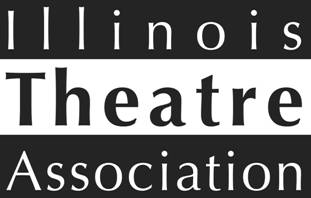
The ITA is a network of dedicated theatre artists and educators
advocating quality theatre throughout Illinois. Please join us!
123 Mill Pond Dr.
Glendale Heights, IL 60139
312-265-5922 (office)
312-265-6101 (fax)
|
|
Please Visit ITA's Corporate Sponsors:
Associate Corporate Sponsors:
Bill Conner Associates LLC
Loyola University of Chicago
|
| 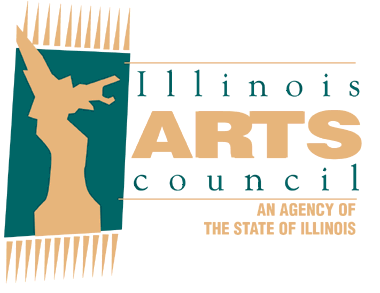
The Illinois Theatre
Association is partially
supported by a grant from
the Illinois Arts Council,
a state agency.
|
|
eFOLLOWSPOT
 DECEMBER, 2017
DECEMBER, 2017
|
WALLACE SMITH -
THE TRUE PATRIARCH OF ITA & IHSTF
by Pat Haynes
This autumn, the ITA was saddened by the loss of its former and long-time Executive Director, Wallace Smith. Pat Haynes, long-time ITA member, took the time to reflect on Wally's dedication to the Illinois Theatre Association and the Illinois High School Theatre Festival.
Wally began teaching at Evanston High School teaching secondary theatre and developed curriculum and methods for theatre education. After 25 years of work as a teacher and administrator, he retired. Two months after his retirement, he was appointed the first Executive Director of the ITA. He was a natural choice for the position as he had been continually involved in National Theatre projects including Director of the Secondary Theatre Conference (1961-63) and President of the American Theatre Association (1971). He served on many important committees and headed significant projects for those organizations. He was also Director of the Illinois Center for Gifted Fine Arts students and associated himself with programs pursuing progressive methods in arts education, including the Educational Laboratory Theatre Project of the U.S. Office of Education, the Aesthetic Education Curriculum Project, and the artist in the schools initiative of the National Endowment of the Arts. In addition to his work as a teacher, he was an evaluator and curriculum consultant to arts programs. He was Director of the National High School Institute at Northwestern University and Director of Drama for the Governor's Honor Program in the state of Georgia.
Wally was there from the beginning of both the ITA and the Illinois High School Theatre Festival. He was the thread that kept the Festival together through many Festival Committees. He understood that Festival was not a competition and reminded us at many committee meetings. He cautioned us so often about sponsorships that might want to attach their names to our All-State Show or our Festival as a whole. He always saw the big picture and in his grand elocutionary style reminded us often. One of his strengths was his ability to collaborate and guide without dictating. Wally always welcomed new members and new ideas with his fatherly warmth.
He was the true Patriarch of Illinois Theatre and his impact on the Festival is unquestionable as he negotiated with the universities and used his status in the state and in the country to raise the esteem of the organization. He was loved and respected by many. This extraordinary educator, artist , and gentleman with be missed.
|
|
ANNOUNCING THE ITA'S
39TH ANNUAL
STATEWIDE NON-EQUITY
PROFESSIONAL AUDITIONS
2/3/18 - Musical Theatre Day
AND
2/4/18 - Non-Musical Theatre Day
LOCATION:
UIC School of Theatre and Music in Chicago
(Note: Do NOT call UIC for information. All inquiries should be directed to [email protected]).
Who Should Audition?
Actors
Recent Graduates
Child and Senior Talent
Talent New to Chicago
Casting Directors will be looking for a wide range of ages, ethnicities, and physical types.
For Whom Will You Be Auditioning?
Professional Theatre Companies
Talent Agents
Casting Directors
Summer Stock Companies
Important Information:
These auditions are for ALL non-equity actors. We especially seek mature actors and minority talent. The number of slots available for student auditionees is limited. Student actors will be considered based on experience and the recommendation of a theatre professional/teacher.
The ITA auditions are for Non-Equity performers and are not sanctioned by any specific union.
This year more than 300 actors will be chosen to audition for a wide range of casting representatives from throughout the state.
Register Today!
|
SPOTLIGHT -
COMMUNITY CHILDREN'S THEATER
by Peggy Hupp, TYA Rep.
Community Children's Theater in Peoria, Illinois was founded in 1957 as a cooperative effort between the Peoria Park District and community volunteers dedicated to providing a healthy experience in dramatics for the children of the Peoria area. Now 60 years later the children's program is still growing strong. CCT presents popular musicals for all ages by you
 th from 8 years to 18 years old. On December 7, 8, 9, 10 Community Children's Theatre will present "Elf Jr The Musical" for its 60th year at Peoria Players Theater in Peoria, Illinois.
The program was created by PPD Superintendent of Recreation Neve Harms as an after school theater education for children and their community. In 1958 Kenneth Camp, a speech teacher at a local high school, was the guiding influence in the formation of the recreation department program and who supplied the professional advice and encouragement for organizing
the Peoria Community Children's Theatre program. The philosophy of the Community Children's Theatre is to foster participation among young people of this community in every phase of children's theatre activity and entertaining programs, with the purpose of raising the standards of such programs to the highest level, which is still a part of the CCT programs. Since the first production in 1958 the program has grown and developed in response to the needs and desires for theatrical activities for children as expressed by educators, parents and the children themselves. CCT programming includes classes, productions, performances, audition workshops and the drama festival in a year-round schedule of activities.
The first CCT formal board was formed in 1960 with volunteers from Junior League. It was inc
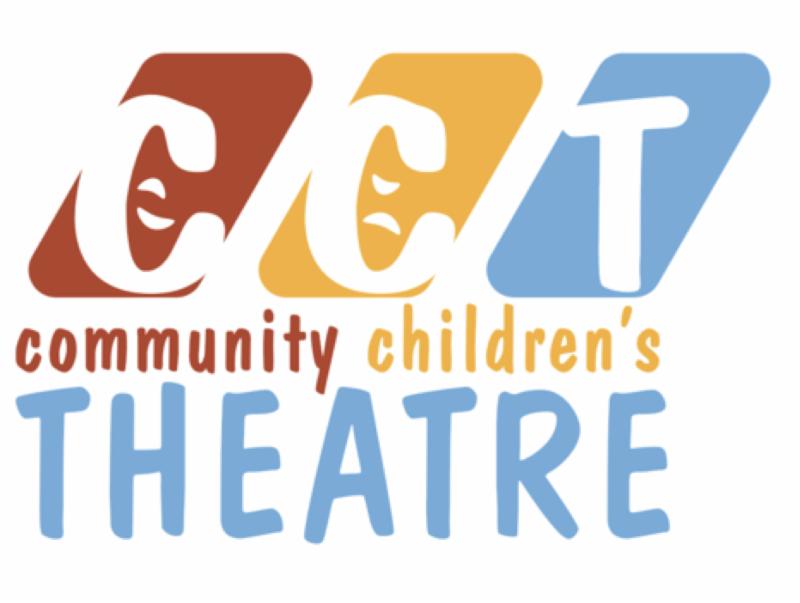 orporated
in Illinois on February 25, 1981, as a "Not for Profit" corporation. Since the first production, the program has grown and developed in response to the needs and desires for theatrical activities as expressed by educators, parents and the children themselves.
Presently, CCT's programming includes two musical play productions each year with cast of 60-70 children and approximately 4,000 people in attendance and an Annual Drama Festival showcasing the talented children who participate in the Peoria Park District's Theater Education for Children after school drama program. Each year CCT sponsors "Agency Day"; a special performance of their summer musical, offering 360 complimentary tickets to special needs and underserved children through our community agencies. The Board members of CCT attend and evaluate all the play performances put on by the 500 students in the TEC after school program thru Peoria District 150 school system and assist in the production of the Annual Drama Festival which has an attendance of approximately 1000 people.
Community Children's Theater continues to strive to educate and enrich the lives of the children in the Peoria and surrounding community and, in the process, brings fine entertainment.
Matinee Theatre Series, MATS, in Peoria was a children's theater program which included participation by children and professional productions by adults for children. In 1983 CCT offered to all grade schools in Peoria District 150 schools a performance. In 1983 Western Illinois University's Regional Touring Theatre Company had an excellent reputation not only in the Peoria area but throughout the state. Western's touring troupe presented Jackie and the Beanstalk to nearly 3000 grade school students. During this time CCT offered a free theater education workshop. The workshop sessions included proper usage and development of voice on stage, before there were microphones used, make-up demonstration and mime demonstration from Illinois Center College teachers. Producers Foundation of New York City was contracted to perform the well-known story "Wind in the Willows" in 1984. This show blended fantasy, action, and a moral as well even the youngest were able to grasp the main points. CCT wanted to expose children and young adults to quality theatre.
Mark Twain said, "Children's Theatre is one of the very, very great inventions of the 20
th century. A children's theatre is the most effective theater of morals and good conduct."
CCT believes Children's Theatre should bring new and delightful vicarious experiences to children which they would experience broaden interests and bring about a finer understanding of their world of imagination. Children's Theater should fulfill the love of adventure in children. The MATS Program ended in the 1980's but CCT continues to grow and develop the youth in the Peoria area.
Theatre work for children has only been in existence since the 1920's. Some group's use adults in their performances, present a children's play for their young audiences, while others, like Peoria Community Children's Theatre, use only children from 8 to 18 years old in their productions. The organization introduces children at an early age to the art of acting, stage presence, and the role of dramatics.
CCT was founded by volunteers who were dedicated to providing a healthy experience in dramatics for the children of the Peoria area. The program is planned and developed by an advisory board with planning and administrative support provided by the Peoria Park District. Since the first production in 1958 the program has grown and developed in response to the needs and desires for theatrical activities for children as expressed by educators, parents and the children themselves. CCT programming includes classes, productions, performances and the drama festival in a year-round schedule of activities. CCT produces two musicals each year with local children from the ages for 8-18 as cast members. These productions are presented in December and July presently at Peoria Players Theater in Peoria, Illinois.
Back to Top
|
QUEER TEENS FIND A HOME ON STAGE
by Emma Helpern, American Theatre
Submitted by Britnee Kenyon,
Secondary Ed Rep
Theatre educators have a unique role. We are not only
teachers;
we are directors, therapists, and pseudo-parents. The theatre
is a safe, yet vulnerable place to create and explore, and its
inclusivity provides that much more comfort for students of marginalized groups. American Theatre's "Queer Teens Find a Home on Stage," struck a chord as groups all over the country work to
provide inclusive environments for LGBTQ+ students.
|
THE FIVE-MINUTE MIDDLE SCHOOL
PARENT-TEACHER CONFERENCE
By Stacy Deemar
Twice a year we convene for parent teacher conferences. Often, it's the parents of our best students who pay us a visit. We are excited to share with these parents their child's great accomplishments and there are not enough accolades to describe these gifted students. The challenge of our meeting is that the school only allots each teacher five minutes to speak with parents. How can you possibly have a discussion with a parent about their child's achievements in drama within five minutes?
Structure your five minutes efficiently.
Most parents are unfamiliar with the curriculum and structure of a drama class. Be succinct in summarizing what you are working on in class and the objectives. Explain what a typical day looks like in your creative drama class. Avoid using technical terms and/or drama jargon that may overwhelm a parent.
Possible Topics for Discussion:
Discuss the student's progress. Summarize the grades the child has earned and give an example of a moment when the student exemplified excellent creativity.
Explain your grading policy and procedures. Have a sample rubric available and if possible, show the parent a recent rubric used for their child. Highlight the child's strengths and state the areas where the child can make improvements or further challenge herself.
Be an advocate for your program. Emphasize the special attributes about your program and the opportunities that students are afforded. Accentuate the value in creative drama and the philosophy utilized in your program.
Discuss Volunteering. Many creative drama teachers are responsible for managing a drama club and directing a play or musical in the school. Ask the parent if she/he would like to contribute to your program as a volunteer. State where assistance is needed in the areas of lighting, make-up, costumes, sets, post production party, marketing, funding, etc.
Explain the history and mission of your program. Briefly share this information with the parent and advise her to visit your teacher website and/or the district website to ascertain additional information.
As you come to the end of five minutes, ask the parent if she has any questions. If the parent makes an inquiry that will exceed the time limit, offer to schedule an additional meeting. Finally, thank the parent for taking the time to meet with you.
Break a leg in conferences!
Back to Top
|
USING THE NEW THEATRE STANDARDS IN OUR PRACTICE -
THEATRE FOR SOCIAL JUSTICE
by Elisabeth Westphal,
Creative Dramatics Rep
Now that we have new theatre standards, I believe it is important for theatre educators to use them to inform our work. To get administrators to take the fine arts seriously, we must know our standards and be able to talk about them articulately. The wonderful thing about these standards is that they focus on both process and product. I have found that it is easy to incorporate many standards into a single unit. Since I have been active in supporting the new standards, I feel I must "walk the talk." I have been working hard to find innovative ways to include them in my practice.
In one of my first forays, last year at Nichols Middle School in Evanston we tried an experiment to give the 8
th
grade students choices in the fine arts. In other years there was one course that every 8
th
grade student took in each of the arts. When we provided choices in theatre, they could choose from a general theatre class, a comedy class, a class on performance, and a class on improvisation. I had a group of fifteen 8
th
grade students who opted to be in a group that would create a performance. I introduced them to the idea of devising through a series of exercises. Then I introduced them to the idea of developing a piece for a specific audience. This is part of the new Illinois Theatre Standards. (TH:Re9.1.8c. Identify how the intended purpose of a drama/theatre work appeals to a specific audience.) I showed them how even with pieces for very young students a theme can developed. They decided to perform for the elementary students. They were interested in the youngest students, so our target audience became 1
st
and 2
nd
grade. Our project used the picture book
Last Stop on Market Street
. The author visited our district and gave us permission to adapt it into a theatre work. One of the reasons this book was selected is because it met a new Illinois Arts Standard. (TH:Cn10.1.8a. Examine a community issue through multiple perspectives in a drama/theatre work.)
This book is about a young boy who comes out of church and goes on a long bus ride with his grandmother where he meets all sorts of colorful characters, including a blind man and his dog and woman with a jar full of butterflies. There is a lovely dream sequence when he listens to music played by a man on the bus with a guitar. When he and his grandmother get off the bus, they arrive at a soup kitchen where they serve meals to the homeless. The book has very little dialogue but is rich in images. The students developed the characters and their back-stories. We talked a lot about techniques to keep young audiences engaged. Ultimately the piece had puppetry, movement, changes in scale and perspective. It was full of energy and movement with the students becoming objects and using scarves to create color and a dream like feeling. One student played the guitar and used her talents to provide the music of the dream.
We took the show to two elementary schools in our district. The audiences were involved and interested. Afterwards we had an audience talk back and I was amazed by how many of the ideas of social justice the students had absorbed through this work. For those familiar with the Danielson framework, this work was almost completely student directed. They decided on the audience, they created the work, and they handled all the aspects of touring to other schools including writing thank you notes to the elementary schools afterwards. My fine arts department also collaborated on this event. The art department made ceramic bowls that were sold to raise money for the local soup kitchen. I invite other educators who are finding ways to use the new standards to improve their practice to tell us about their experiences. For me it was a richly rewarding journey.
|
|
SPOTLIGHT ON
IHSTF EXECUTIVE DIRECTOR -
NATHANIEL HAYWOOD
The 43 Annual Illinois High School Theatre Festival is less than a month away, January 11-13, 2018! It's time to learn a little about its Executive Director, Nathaniel Haywood.
Please tell us about your education/training in theatre.
I double-majored in theatre at Illinois State University (acting & theatre education).
What is the best thing about your job?
Definitely the opportunity to both teach theatre during the day and work with theatre students in the extracurricular setting. Being able to see students grow, find themselves, and create amazing art is always rejuvenating and inspiring. Teaching English is good, but it doesn't hold a candle to what theatre can do for and with students.
What is the biggest challenge you face related to your work in the theatre?
Time and support are the biggest challenges. Time is always at a premium for students and for the school calendar, so finding time to have as many productions as we would like and make them all work is a challenge. Secondly, finding support in terms of audience is a continual struggle. We are supported by our administration for sure, but it is a real task to get students and community members in the door to see the great work that their students are doing.
Of what theatrical accomplishment are you most proud?
Being in year 10 of teaching, I'm still in the first stages of my career, but nevertheless I have a lot of experiences that I look back on in pride. There are a few that stand out - such as directing an old west version of Romeo & Juliet, directing a friend's original work, Might, as my first experience directing, and completing a true commedia dell'arte version of A Servant of Two Masters - but if I was forced to choose a single one it would be my most recent direction of The Diary of Anne Frank. It checked all the boxes for what I would consider to be a successful production: an amazing cast, creating a close, high-functioning, drama-free ensemble, strong learning experience for everyone involved, a phenomenal set, a moving performance, a strong audience reaction, and great theatrical moments & images onstage. Rarely does everything work out well in a production, and by my nature I'm very critical of my own work, but this production was one where I was happy not only with what the students did but with my end as well.
Please describe your personal history with the Illinois High School Theatre Festival.
Oddly enough, even though I went to high school in Normal, Illinois (one of the two locations for the Festival), I did not go as a high school student. I did not find out about it until I started attending Illinois State University's Theatre Department. From there, I began my work on the Festival as a student monitor and helped with the logistics of the Festival. That led me to serve on the Student Committee for three years as well as an All-State Chaperone for three All-State Productions, and I was the co-leader of both groups during my last year. My college career was full of Theatre Festival, and that continued once I graduated and started teaching at Normal West High School. While teaching and directing theatre there (and then at Downers Grove South High School), I moved throughout many different roles with the Festival Committee, serving as a committee member for Exhibits, Ceremonies, Play Selection twice, Workshops, All-State assistant producer twice, and Secretary/Executive Director Elect. Those thirteen years of Festival work has led me to my current position as Executive Director 2018.
Please describe the inspiration and/or motivation for the theme you have chosen for Theatre Fest 2017.
When people think of transformation and theatre, the most common connection is most likely the transformation that takes place onstage - lights, costumes, and characters in a play. While that
is absolutely true and a partial motivation

for the selection of this year's theme, the more direct inspiration of the theme "The Power of Transformation" is the power that theatre has to change you as an individual. Theatre literally revolutionized my life; before getting involved, I was a shy, introverted, naïve kid, and theatre not only opened my eyes to the world but also to myself and what I was capable of. Theatre does that for people, young and old, every day, and that power is what I wanted to celebrate at this year's Festival.
Describe the most challenging/rewarding parts of being the Executive Director for the Illinois High School Theatre Festival.
The Festival has a great history of work and success, so the building blocks are all set up for you already. With the great team that I selected, the Festival gets constructed by expert craftspeople as well. The challenge for me as the Executive Director mainly comes into play with letting my talented team do their thing and not micromanaging them. There are also occasional tough calls that fall to me to make; anytime a school or student ends up not being able to attend the Festival, that is a tough decision to make.
The best parts of being the Executive Director are virtually all the parts! Being able to see the variety of workshops take form, taking part in selecting a great, representative, eclectic slate of productions for performance, and selecting an engaging Opening Ceremony performance are all particular highlights. Perhaps the best part, though, comes at the end when I get to walk around the Festival and see the fruits of our labor as students engage in the Festival.
How can members from ITA divisions other than Secondary get involved in next year's Theatre Festival, present workshops or be on Committee?
As the question says, non-secondary members can present a workshop or apply to be part of future Festival Committees. They can also serve as an exhibitor if they have a theatre-related business or university that they feel our students would benefit from interacting with. Additionally, they could apply to be part of the All-State production staff if they have specialties in the technical areas of theatre.
Please add any message you'd like to include.
I just hope that everyone who attends the Festival will take full advantage of what is offered. Pack your schedule! See everything you can! Go to a workshop for an area of theatre that you haven't worked with before! You never know what area of theatre can or will transform you, so keep an open mind and live the Festival to its fullest.
Back to Top
|
|
SEXUAL HARASSMENT AND NON-PROFITS:
THE POLICIES NEEDED
by Heather Turner,
Insurance Business Magazine
Submitted by Don Shandrow,
Community Theatre Rep
In the wake of all of the recent sexual harassment allegations it is an important time for non-profit theaters to recognize the obligation of management and board to recommit to making certain that their theaters offer a safe space to create and perform and that policies are put in place to ensure that obligation is met. The following article from Insurance Business Magazine entitled Sexual Harassment and Non Profits by Heather Turner addresses these policies.
|
FESTIVAL TIME
by Richard Arnold, Jr., College Rep
It is that time of year again when
excitement and anticipation are in the air.
Of course
,
I am talking about the 2018 t
heatre festival season! January
brings not only
the 43rd A
nnual Illinois High School Theater Festival (IHSTF), but also
the Region 3 Kennedy Center American College Theatre Festival (KCACTF).
For Illinois
high school students
,
it
is an opportunity to
join
with thousands of other
high schoolers participating
in workshops,
seeing
performances from statewide school and learning from others.
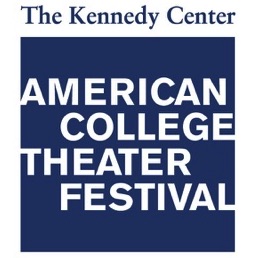
For college students from Illinois, Wisconsin, Indiana and Michigan, it means performing for the Irene Ryan Acting Scholar ship, presenting realized and non-realized design work, or participating in
many other ways
.
It also provides a chance for them to view
the work of their
peers from other colleges and universities.
College professors also
have unique opportunities to become more involved
when attending either of these festivals, or
in my case, both of them
. IHSTF provides
the opportunity for educators
to meet and interview
potential students through auditions and portfolio interviews. A
t
KCACTF
,
we mentor
current students by providing feedback on acting scenes and p
resentations, spending time on the exposition floor discussing their
design
, or talking about the performances we view
. Both of these festivals allow us to develop and lead workshops where we share our ideas with students and other faculty.
However, I think the best part about these
festivals is the chance to absorb some of the energy created at these festivals. These enthusiastic students are
thrilled to be with others who share their passion for theatre, and they are not afraid to share. The exhilaration they provide fills a room very quickly. The discussions I have had with students
always seem to surprise me.
They have definite ideas of how theatre should be used to entertain, educate, and promote inclusion. They are also excited about the use of new technology in theatrical storytelling. T
heir impressions and thoughts,
reminds me
of why I chose to design and teach
. I distinctly remember my early forays of the 'magic of theatre'. An important part of my discoveries were the discussions I had with my faculty mentors. This is a collaborative art and every collaborative moment we
have influence
s
our outlook on the
industry.
So if you are not attending the festival this year, please
plan on attending
one or both
next year. You will
have the opportunity to share part of yourself. Perhaps as a more formal presentation, like a workshop, or in a casual conversation on the expo floor. You will help these young adults
find their way in the world of theatre. You will also get a glimpse into what the future of theatre may hold. It is an exciting prospect.
Back to Top
|
|
ITA PAST PRESIDENT
PUBLISHES NEW PLAY
Dan Haughey's one-act play, THE PRIVATE ROOM,
is newly published 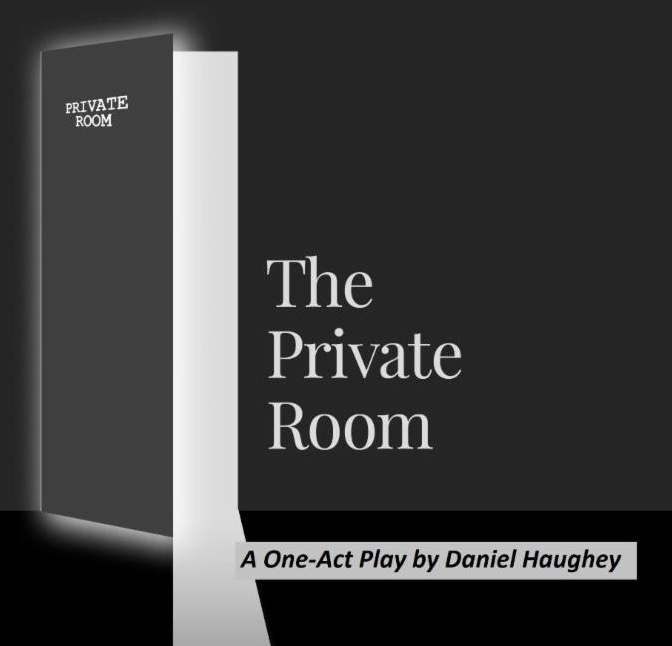 this month online by "Heartland Plays". This play is very appropriate for Colleges and/or adult-out-of-school audiences. You can download a synopsis and perusal copy of the 25-minute play for
FREE click here OR purchase the complete play for $10. In the search block enter Dan's name or the name of the play. If you like a short snow-storm mystery full of passion, this may be the read for you! Production rights, royalty rates and arrangements are also available at http://hea
rtlandplays.com. For more info go to
danact3.com this month online by "Heartland Plays". This play is very appropriate for Colleges and/or adult-out-of-school audiences. You can download a synopsis and perusal copy of the 25-minute play for
FREE click here OR purchase the complete play for $10. In the search block enter Dan's name or the name of the play. If you like a short snow-storm mystery full of passion, this may be the read for you! Production rights, royalty rates and arrangements are also available at http://hea
rtlandplays.com. For more info go to
danact3.com .
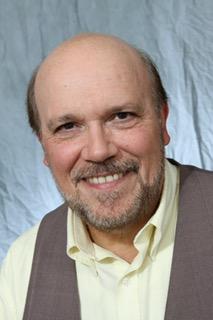 Dan is a Speech-Theatre Professor Emeritus from Black Hawk
College, Moline, IL and holds t he MFA in Theatre--Playwriting & Play Production--from Southern Illinois University-Carbondale.
Dan is a Speech-Theatre Professor Emeritus from Black Hawk
College, Moline, IL and holds t he MFA in Theatre--Playwriting & Play Production--from Southern Illinois University-Carbondale.
Back to Top
|
|
|